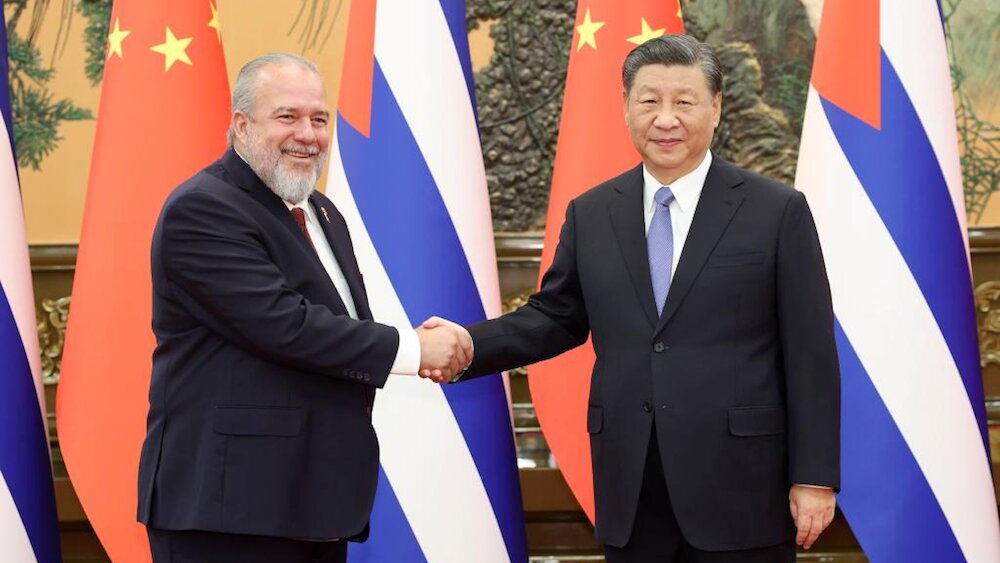In September, the Cuban Government closed the "Chinese Costco" in Havana, an establishment like the thousands that can be found in any country and that had managed, to its customers' surprise and joy, to open its doors in Cuba to sell everything that the Chinese sell wherever they go, from hardware to miscellaneous goods, textiles, shoes and food.
The closure of China Import —its real name— was ordered because inspectors "discovered" that dollars were traded there, taxes were evaded, and undocumented workers were hired; that is, the same things being done in private businesses all across the country, as it is the only way for them to survive the legal and fiscal morass to which Castroism subjects them.
In fact, the Government closed that first Chinese store (who authorized it in the first place was never disclosed) to make it clear that those Asian stores selling products of dubious quality, but at great prices, which have triumphed on the world's retail markets, are not welcome in Cuba, thus sending a political message, given the well-known support of the Chinese State for the expansion of these businesses throughout the world... except in Cuba and probably North Korea.
According to the Financial Times, the Chinese Government has lost patience with the country, not as a direct reaction to this symbolic offense, in any case small, but due to the Castroist policy of blocking its market, exasperated by Havana's refusal to undertake serious liberal economic reform, as the country teeters on the verge of humanitarian disaster.
Given that Castroist government's political decisions make it difficult for it to trade with the United States, China is the obvious alternative. Trade implies bilaterality, giving in order to receive, but before giving one has to produce, and that is where Castroism fails, as it is more accustomed to being given political allies than to seriously participating in international trade.
Cuba is of very little geostrategic value to the Chinese, so they are not interested in subsidizing a suzerainty in the Caribbean. What they are interested in is buying minerals, sugar and other by-products. The problem is that Cuba, given its inefficient productive model, which Castroism does not want to reform, has less and less to offer, so it has not been able to take advantage of its "friendship" with the autocrats of the Communist Party of China (CCP), thus squandering a historic opportunity to take advantage of that country's growth in this century.
In the year 2000 Latin America, where Cuba is located, exported less than 5 billion dollars to China, and received a little more than that figure from there. In 2021, however, that trade topped 220 billion on both sides, an increase of 4,300%.
During that same period, Chinese imports from Cuba went from less than 100 million to just over 300 million today; an increase, but of only 200%, 21 times less than the commercial relationship with the rest of Latin America.
The most worrying thing, however, is that while trade with Latin America has been steadily increasing, the relationship with Cuba peaked in 2008, when China bought more than a billion dollars in goods from Cuba. Since then it has declined to just a third of that figure, a collapse that cannot be blamed on the US embargo, but rather on the inefficiency of the Cuban economy, which, even having a buyer and a supplier of everything necessary to produce, is unable to do so.
The resounding failure of the commercial relationship between the Asian giant and Cuba reveals that the latter's problems are independent of the embargo, and are much more related to the inadequacies of its economic system, a model that has not worked anywhere. Even so, with selfishness and cruelty, those who govern the country refuse to change it, even if that means sabotaging their relationship with their most important partner.
Despite the successful examples of China and Vietnam, which, by evolving into market economies and mending their relationships with the United States, have prospered, almost magically, Castroism has still refused take a path that, although entailing a threat to its absolute power, would guarantee profound improvements for millions of Cubans trapped on this hijacked island. In Cuba, not even Valeriano Weyler was this cruel.
